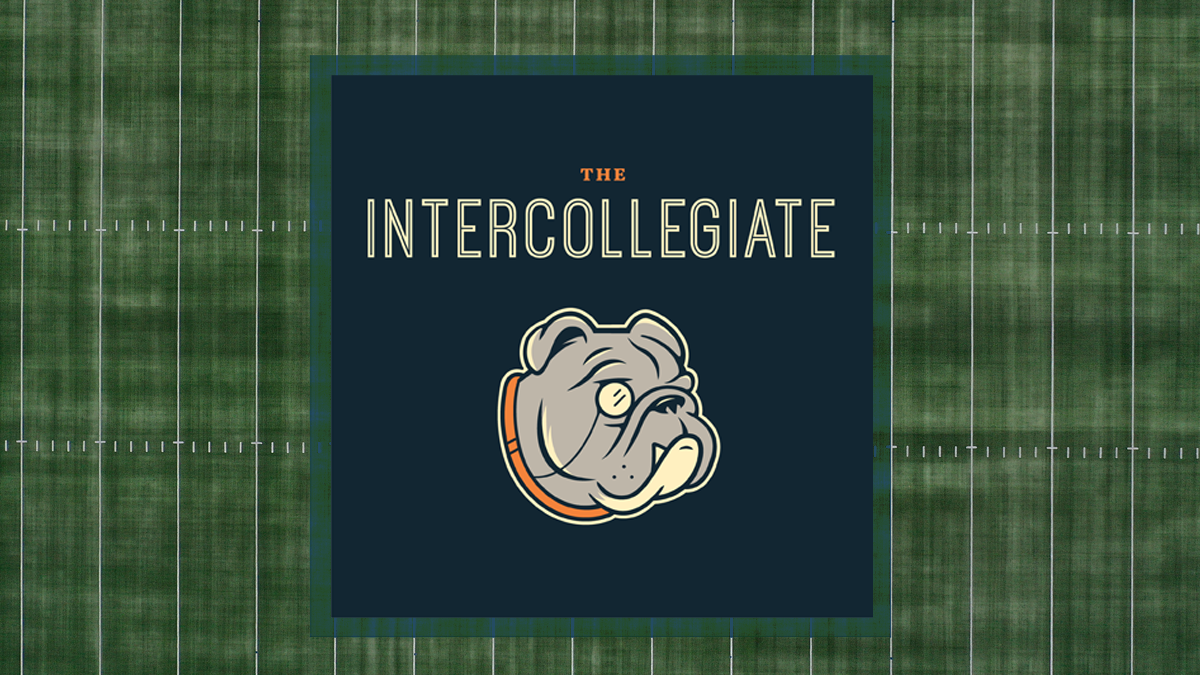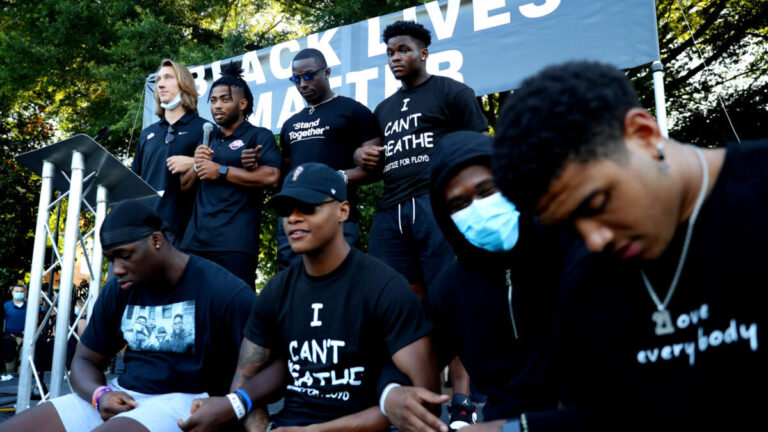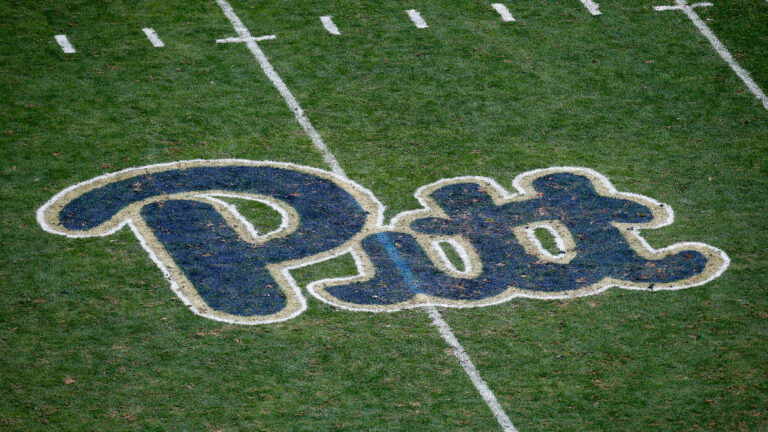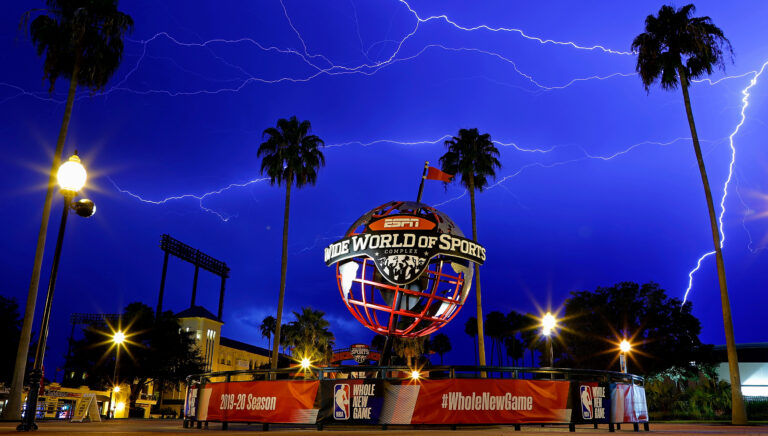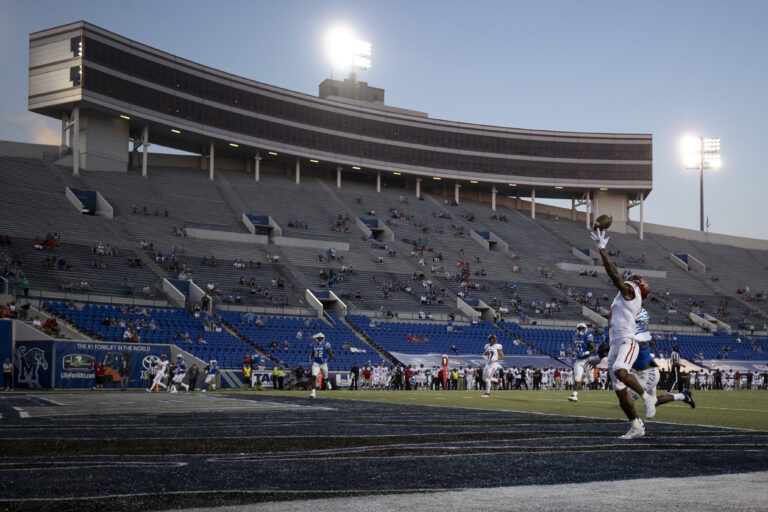The Intercollegiate Discusses "Permission To Speak Freely? Power vs. Freedom"
Why this matters
Daniel Libit and Luke Cyphers of The Intercollegiate discuss the rights of college-athletes and the power of money as colleges begin their fall and winter sports seasons.
Last week, the Pac-12 Conference announced that it will resume its football season and will officially start its basketball season on November 25. This announcement comes after the postponement of the conference’s sport schedule in response to the pandemic. But if the pandemic isn't over, why would college sports start again?
Daniel Libit and Luke Cyphers are co-editors of The Intercollegiate, an investigative sports journalism outlet. In their article, "'Permission To Speak Freely?': Power vs. Freedom," they delve into the physical and economic exploitation of collegiate student athletes. As day to day life and media coverage becomes increasingly fixated on social issues like racism, violence, and disease, student athletes are still unable to fully express their opinions. In a study of player handbooks across the country, Libit and Cyphers found that the most universal restrictions were on athlete speech. In their study, "Must Let Head Coach Know," they state, “Almost universally, schools required athletes to deal with any media request through the athletic department’s sports information staff, forbidding players to give contact information to reporters.”
“It was confirming about a lot of the things we’re seeing in college sports in terms of the power dynamic,” says Libit. “Coaches are still operating - in many cases - in a way that’s almost anachronistic to the current moment. It certainly conflicts with this notion that athletes are being treated like adults and full citizens and that the priority of college sports is academic.”
The restart of Pac-12 athletic seasons and the continuation of sports in other conferences demonstrates that it's not all about academics or athletic achievement. It's about money.
“At the end of the day, the most important thing for college athletic departments and the universities that they’re in is to just play the games, even if they were playing before 25% capacity stadiums or zero fans in the stands,” asserts Libit. “I think the goal was just, ‘Let’s make good on these TV contracts because they were at risk.’”
If there’s no sports, there’s nothing to televise. And if there’s nothing to televise, there’s no money. It can be very credibly inferred that the reason for cancelling postponement isn’t so much about enriching the experience of the athlete, but rather the enrichment of the commercial institution. Current models predict that the number of COVID-19 deaths in the United States could easily pass 400,000 by New Year’s Day, but apparently some numbers are more important than others.
Libit says, “It’s possible that what we’re going to see on the field and what we’re going to see play out over the next month or two is a case study in why this should have never happened in the first place.”
Cyphers attributes the disrespect for student athletes’ rights and health as a product of the perpetuation that they’re still kids incapable of autonomy. This makes it harder for progress to happen. He says, “We treat them as less than full adults, these college athletes. They’re not really students, they’re not really employees, and they’re not really full adults.”
While this might be a stark realization, Libit and Cyphers believe that if student athletes are going to receive the respect they deserve and have their rights protected, it depends on the media. They mention that all too often college sports journalists and media outlets avoid criticizing the system and accept the status quo. They urge fellow reporters to take advantage of public records and to advocate for these student athletes who right now need all the support and all the respect they deserve.
Monthly Issue
The Reset of College Sport
Sport at the college level in America is facing issues reflective of the world at large. From the calls for racial equality, labor disputes and discussions, to health and safety concerns with playing in a pandemic - what will this reset moment look like?

